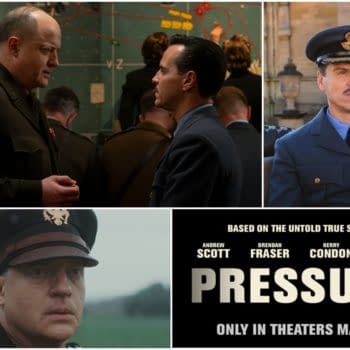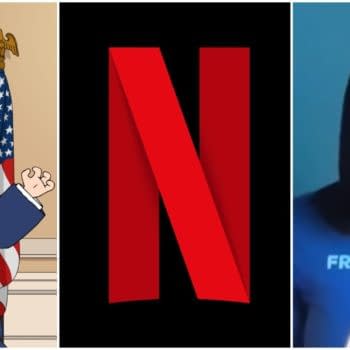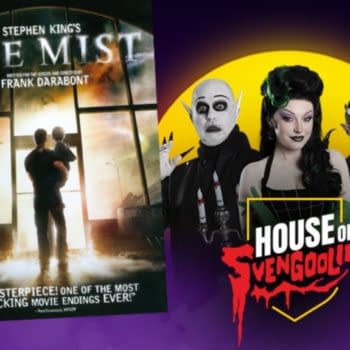Posted in: A24, Kaitlyn Booth, Movies | Tagged: a24, Dream Scenario, nicolas cage
Dream Scenario Review: An Interesting Concept Better Suited To A Short
Dream Scenario feels like one massive missed opportunity for something that could have been great. Instead, it appears that everyone involved decided to play it safe instead of really taking advantage of the concept laid before them.
Article Summary
- "Dream Scenario" falls short in exploiting its unique dream infiltration concept.
- Nicolas Cage's talent is underutilized as the film defaults to mundane dream sequences.
- The ending deflates the film's mystery with an ill-advised attempt at explanation.
- A potential gem for a short film is lost in the overstretched feature format.
Dream Scenario has an extremely interesting concept they don't do quite enough with and how to extend it to a full movie, making it better suited to a short than a feature film.
Director: Kristoffer Borgli
Summary: A hapless family man finds his life turned upside down when millions of strangers suddenly start seeing him in their dreams. When his nighttime appearances take a nightmarish turn, Paul is forced to navigate his newfound stardom.
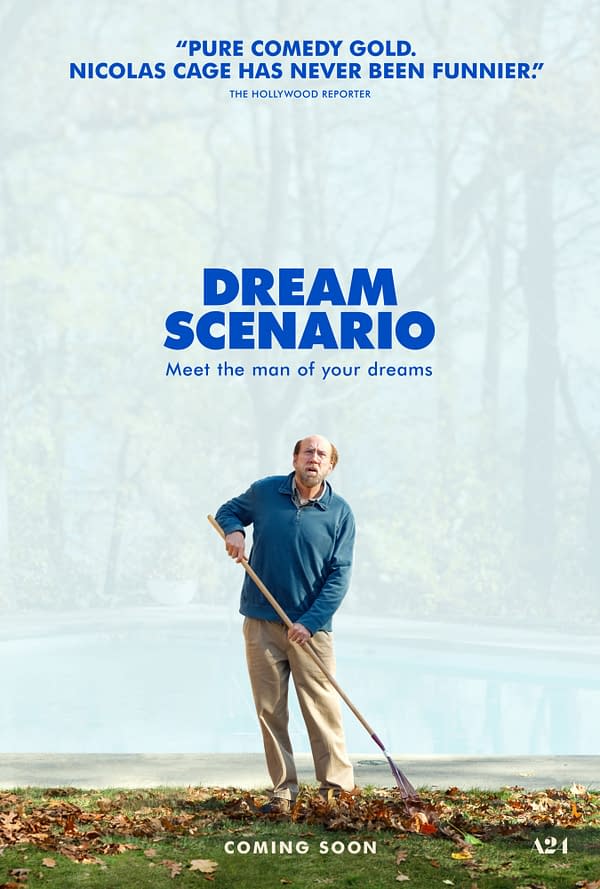
The concept of exploring dreams and what they are and what they could be is far from original, but the idea that someone could become part of everyone's dreams without even meaning to is something new that Dream Scenario seemed eager to explore. The first trailer seemed to hint that while things might start out tame, our dreams often get weird, and no one is better at getting even weirder than Nicolas Cage. So the film had a lot of promise just from the concept and that casting alone because the only limits were what could be placed on screen because dreams have no limits.
However, Dream Scenario takes this concept and doesn't take advantage of it. While the film has a couple of classics, like teeth falling out and a couple of weird dreams, all of the dreams we see Paul (Cage) wander into are pretty generic. Then, when everything starts to get weird, instead of being weird, it's just violence. What makes something a nightmare is extremely specific for people, and while some general things will scare people, the only thing director and writer Kristoffer Borgli could come up with was violence. Again, not taking full advantage of this incredible concept they have created. Dreams are limitless, and the dreams in this film are about as basic as they get.
That's why it becomes more and more apparent as the film goes on that it completely runs out of gas. The ending specifically is where things really fall apart as the film does the one thing you shouldn't do: try to make something impossible sound feasible. In an effort to add some more commentary to the end of the film, Borgli takes away the helpless feeling that had followed Paul throughout this entire film. Paul was just a guy appearing in people's dreams, but they were attributing the actions in their dreams to him, and no one could explain it, and no one could stop it. Of all the nightmares described in this film, that idea is the most frightening, and things always become less scary the more you try to explain them. Why the events of Dream Scenario took place isn't the point; how the events impacted Paul's life, family, relationships, and sense of self is the reason why we're here.
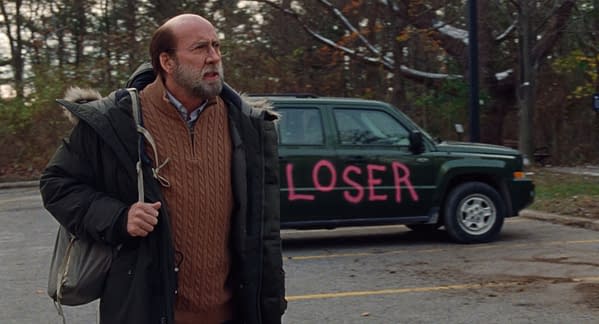
That is why this concept, in the way it is presented in the finished film, feels much better suited to a short rather than a feature film. You don't need to linger on these dreams for them to be impactful; think of the quick universe-switching scenes in Everything Everywhere All At Once; you only need a glimpse to understand what is going on. Since the feature film doesn't go all out with the concept, a short could easily work around a limited budget but still capture the insanity of what goes on in people's minds and how we feel when our dreams follow us into the real world.
Dream Scenario feels like one massive missed opportunity for something that could have been great. Instead, it appears that everyone involved decided to play it safe instead of really taking advantage of the concept laid before them. That is only made worse when the film stumbles hard in the second half and ultimately falls on its face by the end. There is an excellent short buried somewhere in this hour-and-forty-five-minute film, but the feature film we have in front of us is just a deflating balloon until nothing is left.








